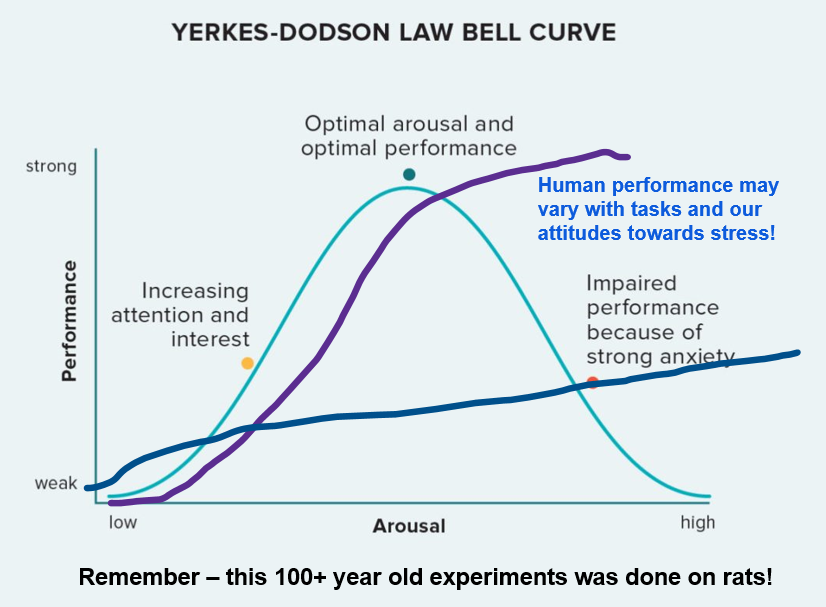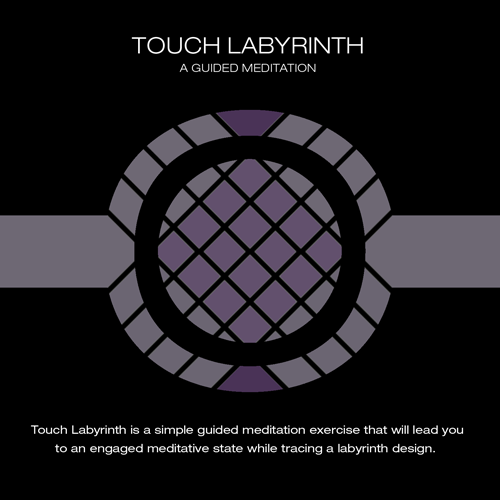|
Managing Test Anxiety - a 2 minute Breathing Exercise for Peak Performance
“The best moments in our lives are not the passive, receptive, relaxing times… The best moments usually occur if a person’s body or mind is stretched to its limits in a voluntary effort to accomplish something difficult and worthwhile.” – Mihaly Csikszentmihalyi Top athletes, actors, salespeople, teachers and exam takers use and repeat short performance routines or rituals to get into and stay in a peak performance state! Learn a short two-minute breathing exercise that gets you in peak mental and physical states for an important meeting, presentation or exam. It is very difficult to be completely calm and relaxed during important meetings. Actually, the opposite is important – we need to be alert and active. Some amount of anxiety is good because it improves our focus and energy levels (See the Yerkes-Dodson Law Bell Curve below). Of course, it helps to remember this curve was generated from experiments on rats and how people respond to stress varies from task to task and from other complex factors! The other lines show possible responses to stress! We can be aware of negative thoughts and feelings; we can accept them and move forward. Research shows that participants who are taught to remember that stress and anxiety can be beneficial tend to do better than those who look at stress negatively. Remind yourself that anxiety is not inherently bad. It can be a source of energy and focus that you can harness. Moreover, embracing the positive qualities of stress can be a self-fulfilling prophecy. Repeat to yourself : “Stress is My Friend” Two breathing techniques – your choice - https://xhalr.com/
Key performance state: Remind yourself that stress is not inherently bad. Remind yourself "Stress is My Friend" Simulate stressful conditions when taking practice tests so you train to be aware of anxiety and understand the gifts of focus, energy, and memory it brings! Step 1 = Body reset – Focus on your breath and key negative emotion – anger, frustration, or fear. Inhale awareness . . . how does your body feel, your heart rate, any tension? Exhale the negative emotion . . . (Practice this for five breaths – typically 20-30 seconds) Step 2 = Mind reset - Inhale fresh air, exhale as a letting go exercise – narrow focus – just the breath. (Practice this for 5 breaths – typically 20-30 seconds) Step 3 = Focus – Think how you want to feel during presentation, test or performance – Calm, Confident, Competent . . . Inhale those states and exhale any residual negative emotions like anxiety, anger or tension (Practice this for 5 breaths – typically 20-30 seconds) Practice is Key! Start this practice at least 2 weeks before the exam/event – just 2-3 minutes every day – several times a day and during breaks in your quiz taking. References Leah Lagos: Heart Breath Mind: Train Your Heart to Conquer Stress and Achieve Success Jill Bolte Taylor Whole Brain Living: The Anatomy of Choice and the Four Characters That Drive Our Life Mrazek, M. D., Franklin, M. S., Phillips, D. T., Baird, B., & Schooler, J. W. (2013). Mindfulness training improves working memory capacity and GRE performance while reducing mind wandering. Psychological science, 24(5), 776-781. Xhalr.com – great free website with both 4-6 (default) and square breathing
1 Comment
Visualizing always helps me get in the right frame of mind. Focusing on my breathe and creating a visual white light bubble around me helps to calm my mind. If I feel stressed out or anxiety creeping in, the best management for me is walking outside. Taking a deep breathe and feeling nature immediately releases endorphins for optimal performance. Thanks for the tips and reminders!
Reply
Your comment will be posted after it is approved.
Leave a Reply. |
a guided finger meditationEngage your senses with soothing music, guided imagery and a labyrinth tracing activity which leverages the power of touch. Click the album cover to learn more. Categories
All
|


 RSS Feed
RSS Feed